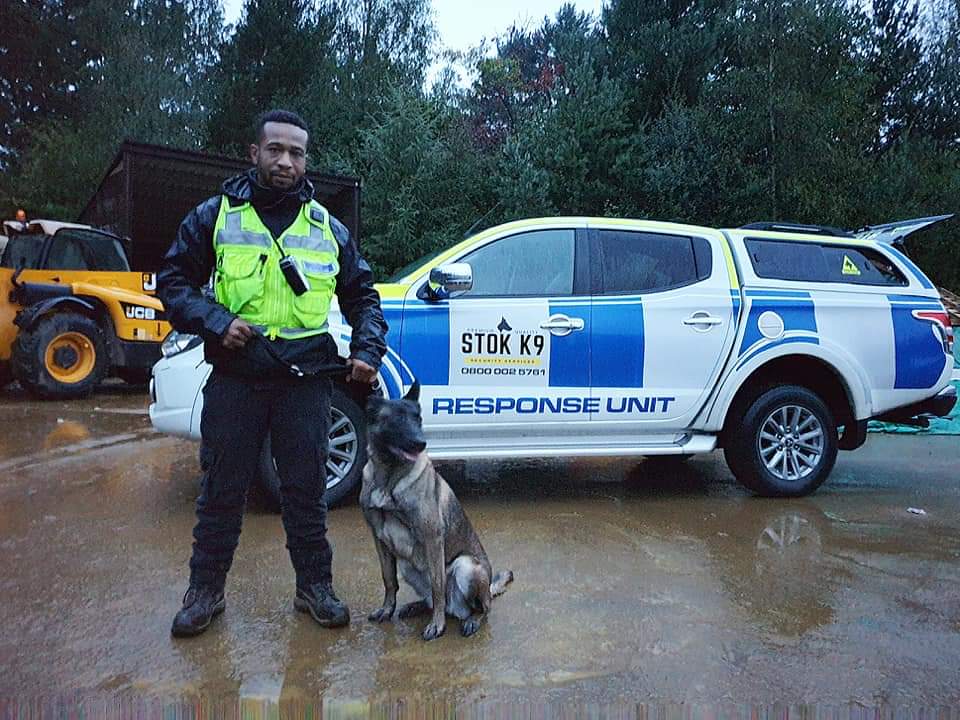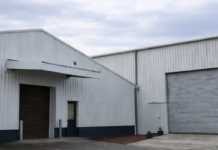
CONSTRUCTION bosses have been urged to take steps to prevent the growing trend of unauthorised people sneaking onto sites to take footage of themselves to post on social media.
Kai Stok, owner of Stok K9 Security Services, told Project Scotland these individuals are potentially endangering their own lives – and those of others – by partaking in high adrenaline feats like climbing up structures or even onto equipment like cranes.
With Covid-19 leaving many businesses re-evaluating their security strategies, Kai said construction chiefs should opt for companies with ethical practices to handle their sites. Formally a dog handler, in 2018 Kai decided to set up a security company where those representing the firm are well treated and positively reflect both his business and the security sector generally.
The 32-year-old believes the company will become one of the biggest dog handling security firms in the UK within the next five years, attributing much of the initial success to being honest with clients – even if it means potentially missing out on jobs.
“In all honesty, we have won a lot of contracts by saying that we can’t achieve (a client’s) timescales, or we haven’t got the right team to do this job at the moment,” he explained. “A lot of firms appreciate the honesty and will wait for us to compile the right team, as they’d rather that than a company taking on the job and just seeing how it goes from there.”
Kai’s firm undertakes security for a number of industries, including construction. He explained a growing trend is youths scaling large pieces of machinery or structures on site – with the whole thing being filmed for social media. It goes without saying, such activities present immense dangers – not just for the individuals, but also those who work on sites. Kai explained that the wellbeing of workers is put at risk once structures and equipment are tampered with.

He added that it is important to reach an understanding with youngsters to try and steer them in the direction of safer exploration – such as local nature parks – all the while ensuring they are aware that entering the site puts them at risk of not only facing the hazards present, but also a trained dog.
It is worth noting that whilst security dogs are highly trained, they are unable to differentiate between a youth seeking a bit of fun with no malicious intentions and a sophisticated thief ready to loot the site. All they see is a threat trespassing. It is therefore essential that these dogs and their handlers are appropriately qualified and vetted.
In 2019, Project Scotland spoke with Steve Hill, author of the British Standards for security dogs. He told of the absolute need for construction firms to ensure those deployed as dog handlers have the correct paperwork, otherwise, prosecutions could be made if a dog attacks. Kai confirmed fake dog handling paperwork is a ‘very, very unfortunate reality’ in security. He explained, “We screen and vet our dog handlers; we make sure they have their relevant training. We make sure they have adhered to the British standards and we make sure that – apart from our own business public liability insurance – they have their own.
“The reality of the industry is that 95% of the dog handlers in the security industry are self-employed, so they can work for several firms. We make sure that they have their relevant paperwork and training and if you don’t have that you cannot go on our books and you cannot work representing our company.”
The use of dogs on site is something that Kai encourages construction firms to consider. Not only does it act as a deterrent to intruders, but also offers protection to the security guard – both from a comfort and confidence point of view, and also in that the dogs provide heightened senses that technology simply can’t.
He revealed the Covid-19 pandemic has left many construction firms making cuts to security budgets, resulting in many cases of just one guard patrolling at a time and thus not being able to cover the whole site. Kai said in the current climate, dogs can offer a cost-effective solution. “You have to have physical security on site,” he said. “A lot of contractors believe that having CCTV alone is good enough – that it is going to deter theft (and) vandalism from occurring on site. But, to be honest, having on-site security will avoid this from happening; if they see any potential signs of entry, they are going to react to it immediately.
“What I would suggest is to sort of monetise the consequences of having your site vandalised and having a lot of machinery stolen and see how that affects your financial situation, your projects in terms of delays and potential claims should a trespasser be injured on site. Evaluate what you find and consider whether it’s worth not having security – how much could this cost you?”








